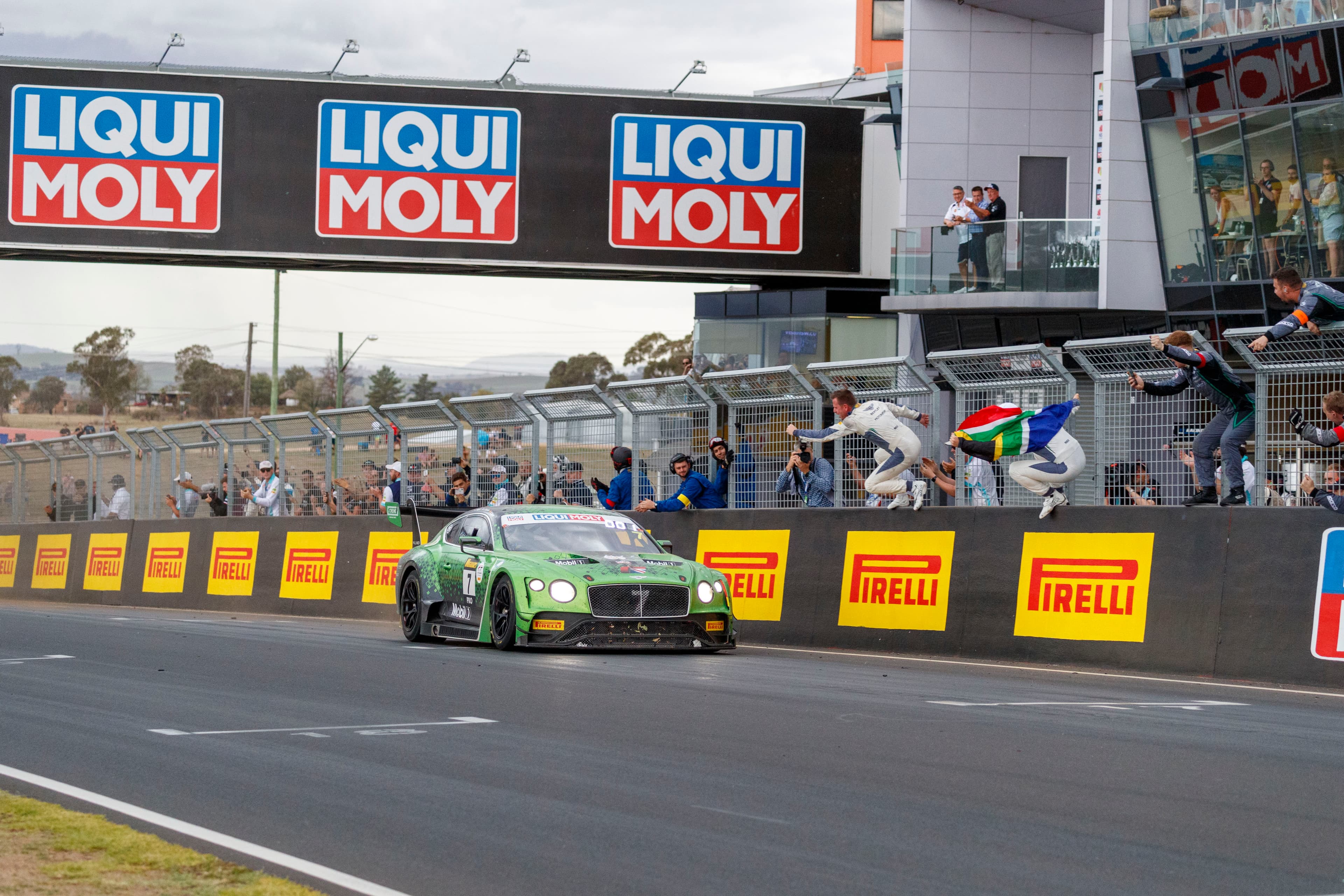From humble beginnings, the Meguiar's Bathurst 12 Hour has evolved to become one of the worlds most recognisable long-distance endurance races, with international attention and the best teams and drivers from the world of GT racing competing in a flat-out 12 Hour sprint that delivers all the usual Bathurst drama, excitement, and emotion the Mountain is famous four.
Dubbed ‘Australia’s International Enduro’, the 12-Hour has entrenched itself as the opening major event on the annual Australian Motorsport calendar, and doubles as the opening round of the continent-hopping Intercontinental GT Challenge.
The first version of the 12-hour came to be in 1991, a local promoter establishing an around-the-clock enduro for Production-based vehicles. The race grew quickly, attracting manufacturer support and big-name drivers like Alan Jones, Peter Brock, Gregg Hansford and more.
However, after just four years, financial issues pushed the race to a move to Eastern Creek Raceway in Sydney, before disappearing all together following the 1995 running.
Fast-forward 15 years and the time was right for a return; event promoter James O’Brien taking a punt that the market wanted a 12-Hour enduro back and adding it to his ‘Bathurst Motor Festival’ event held in 2007.
The race would once again be a multi-class affair with ‘3E’ Australian Production Cars the headline category.
The race instantly captivated people around Australia and the entries flowed from there, however after four years it was clear its growth – with Production Cars as the headline category – had maxed out.
To expand, the race needed to go international so in 2011 the bold decision was made to make GT3 machinery the headline act.
Led by Stephane Ratel’s SRO organisation, GT3 had been growing in popularity around the world and the time was judged right to make the leap to a serious, international affair.
The first year was challenging: entries dropped from 42 cars the previous year to just 26 in 2011, with half a dozen outright cars joined by Porsche Cup cars and a smaller cadre of Production Car entries.
And yet, there was light at the end of the tunnel; early commitment from Audi to send a works team – Audi Sport Team Joest – down under came with it the brands marketing might, and the event instantly had a larger international audience from there.
Audi would win the first two GT3-specification 12-Hour races and were key in establishing the race as a serious, must-win event on the global stage.
It took two years, but by 2013 the race began to explode in interest; 49 cars entered and a thrilling race was won by Aussie team Erebus Motorsport, the driver line up including German legend Bernd Schneider.
However the moment the race became more than ‘just another enduro’ came a year later, when Bathurst legend and household name Craig Lowndes’ defeated current FIA GT3 world champion Maximilian Buhk in a thrilling all-out fight to the line.
Driving a Ferrari, and watched live by a free-to-air audience for the first time, interest in the race exploded and since then it’s never looked back.
The Lowndes-Buhk battle is one of the great moments in 12-hour history, but there have been so many more since.
There was Japanese star Katsumasa Chiyo powering from fourth to first in the final two laps of the incredible 2015 race to win, or the record-breaking performance by McLaren the following year as Shane van Gisbergen smashed everybody in an ominous sign of things to come.
Lowndes won again in 2017, again in a Ferrari, in a controversial race that saw Maro Engel not holding back on live TV or the shock Audi victory a year later, when a massive crash saw the race red-flagged within the 12th hour of running.
Matt Campbell’s incredible late pass on Jake Dennis’ Aston Martin in 2019 was the stuff of Bathurst legend, as was the stunning victory by the works Bentley Motorsport team in the 2020 edition – a win a long time in the making and perhaps one of the most popular yet.

Being an international race, the global Pandemic slowed things, with the 2021 race not happening – but it came back in 2022 and then was back to original form a year later as Jules Gounon etched himself into Bathurst fokelore by becoming just the third driver to claim three-straight Bathurst ‘majors’ – not to mention teammate and Aussie expat Kenny Habul winning again.
With a global following and presence, the Meguiar's Bathurst 12 Hour can now sit proudly alongside other major endurance races in the world – Daytona, Spa and the Nürburgring, among others – as a true ‘major’ in the global endurance racing landscape.
Number of races: 20
Most starters: 52 (2017)
Most finishers: 32 (2017, 2018)
Race distance record: 323 laps, 2006.7km (2023)
Record average speed: 167.07km/hr (2023, quickest ever Bathurst race)
Closest margin of victory: 0.4138s (2014)
Record number of lead changes: 34 (2020)
Most cars on the lead lap at the finish: 7 (2018, 19, 20)
Qualifying record: 2m00.8819s (Maro Engel, Mercedes AMG GT3, 2023)
Lap record: 2m01.5670s (Shane van Gisbergen, McLaren 650S GT3, 2016)